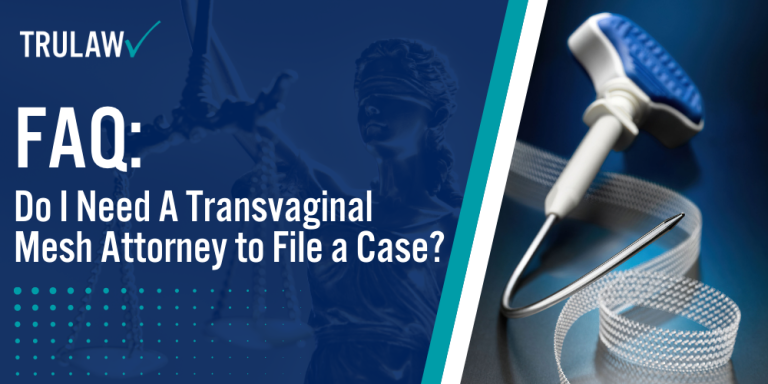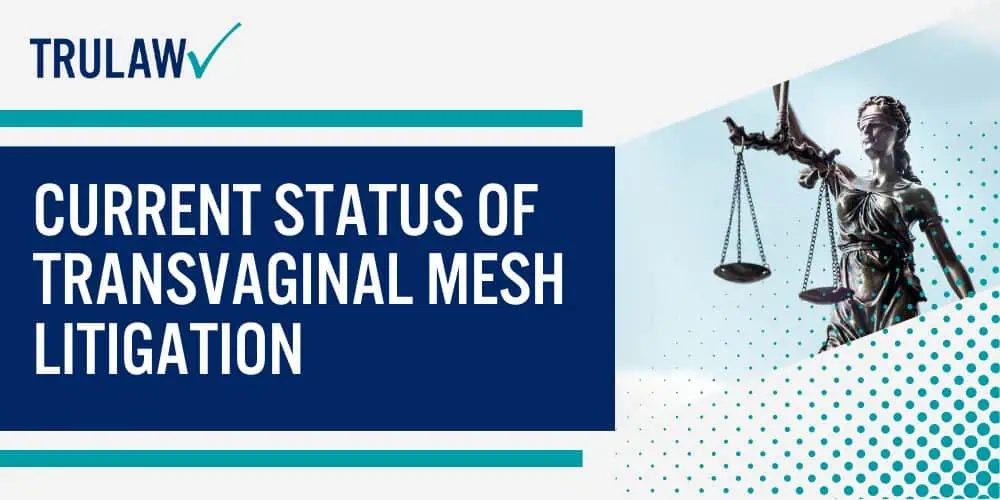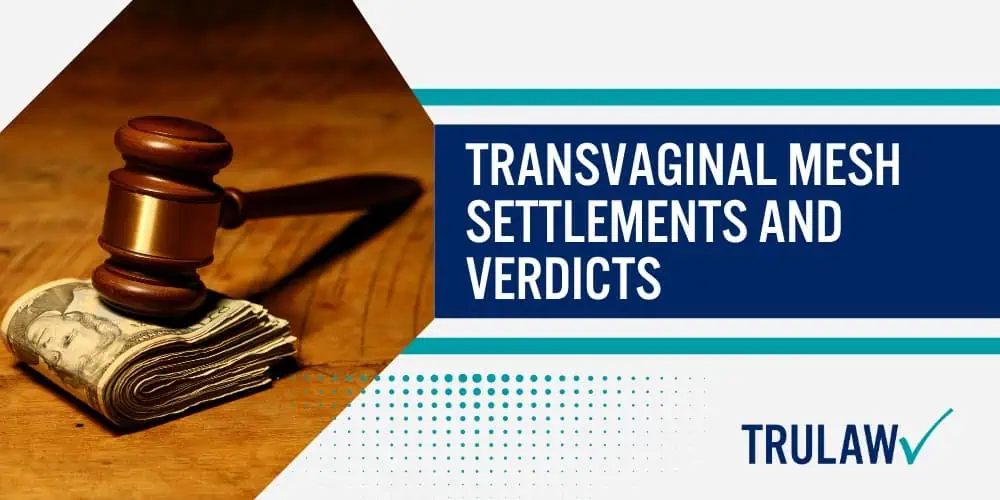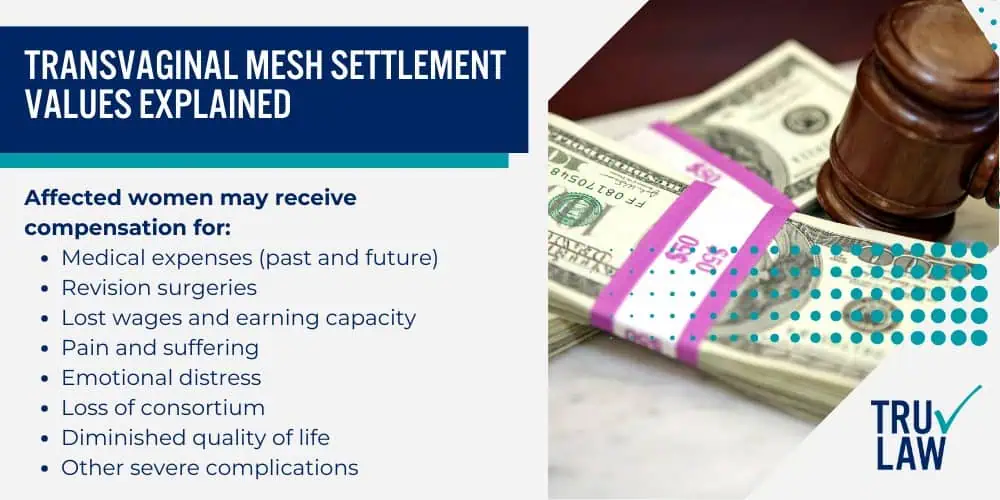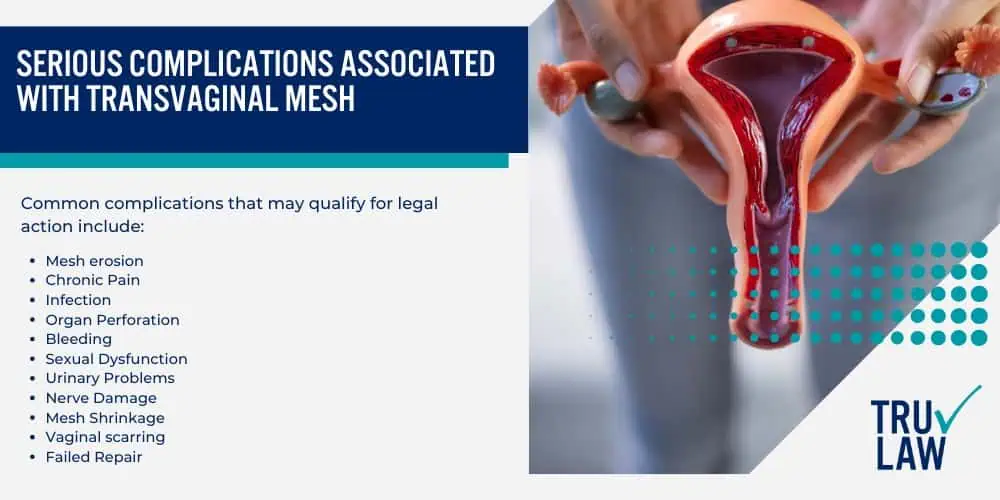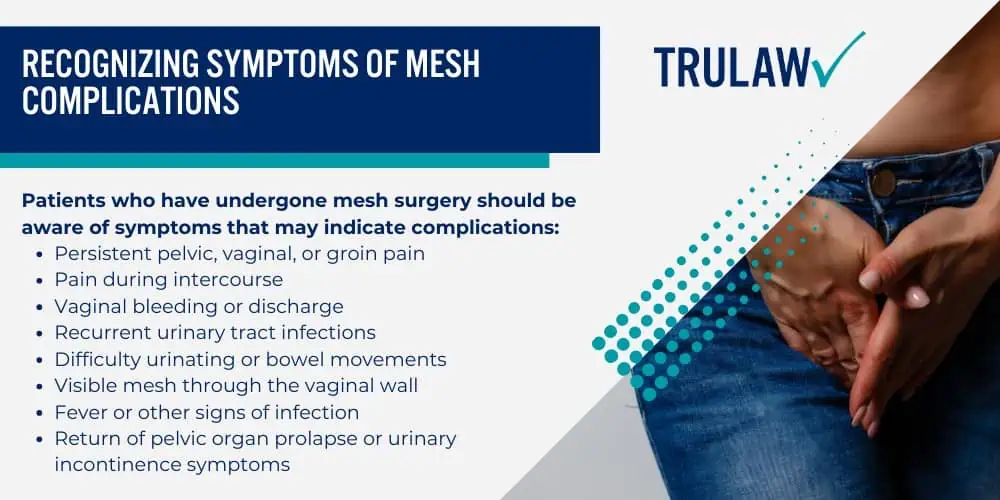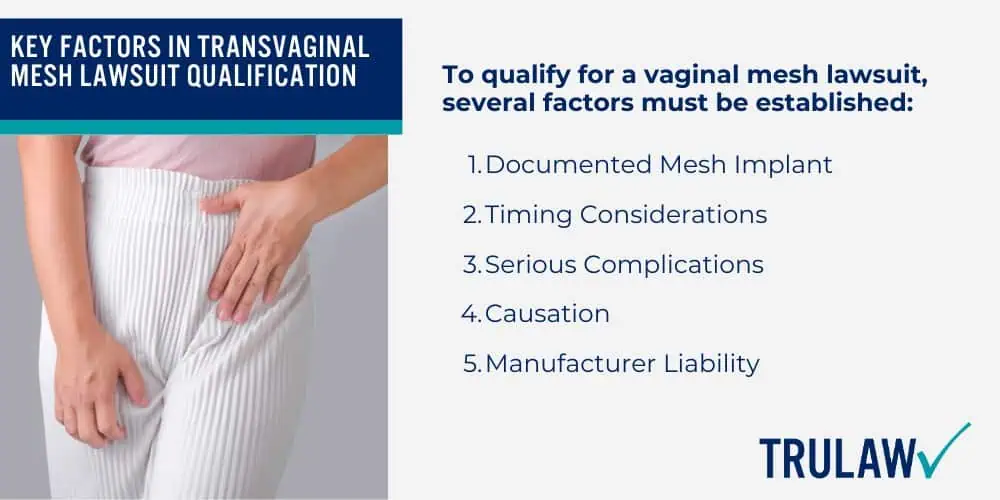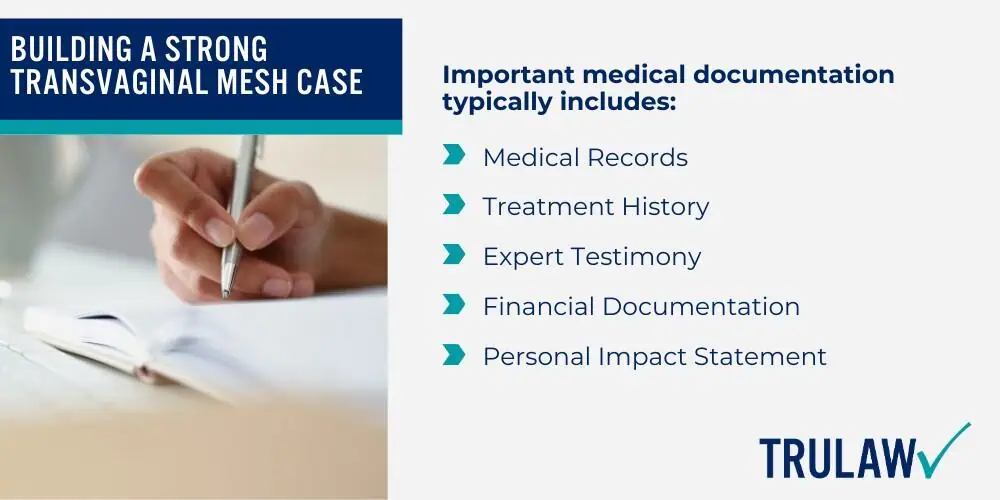Vaginal mesh lawsuits have been filed nationwide by thousands of women who suffered severe health complications from these implant devices.
To date, settlements total approximately $8 billion for claimants across 48 states.
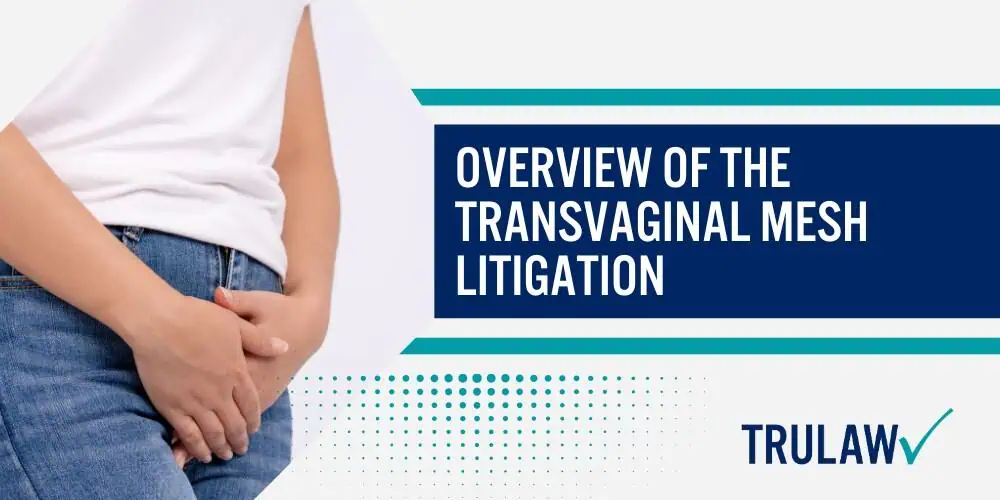
While most cases have been resolved, new claims continue to be filed in 2025 by women experiencing ongoing complications from surgical mesh procedures.
The Transvaginal Mesh Litigation Crisis Explained
The Transvaginal Mesh Litigation encompasses lawsuits filed against transvaginal mesh manufacturers for injuries, pain and suffering, and financial costs related to complications from these medical devices.
Surgical mesh, also known as pelvic mesh or vaginal mesh, is a medical device surgically implanted to treat pelvic organ prolapse (POP) or stress urinary incontinence (SUI) in women.
These conditions often develop after childbirth, menopause, or hysterectomy when pelvic floor muscles weaken.
The use of transvaginal mesh has been highly controversial in the medical community.
While initially touted as an effective treatment for urinary incontinence, thousands of women have reported serious complications and injuries after transvaginal mesh surgery, resulting in extensive litigation against manufacturers.
Following years of complaints and growing safety concerns, the US Food and Drug Administration (FDA) banned sales of all transvaginal mesh products for pelvic organ prolapse in April 2019.
The Evolution of Transvaginal Mesh Devices and Regulatory Oversight
Transvaginal mesh products were introduced to the market in the 1990s.
In 1996, these devices became eligible for FDA approval through the expedited 510(k) process, which permits approval without rigorous clinical trials if a device is deemed similar to previously approved products.
This regulatory pathway allowed numerous mesh products to enter the market without comprehensive safety testing.
The FDA timeline regarding surgical mesh for pelvic organ prolapse POP and stress urinary incontinence SUI includes:
- 2008: First Public Health Notification warning healthcare providers about potential risks
- 2011: FDA identified transvaginal mesh for POP as high-risk
- 2012: FDA ordered manufacturers to conduct post-market surveillance studies
- 2016: FDA reclassified transvaginal mesh for POP as class III (high risk)
- 2019: FDA ordered all manufacturers to stop selling mesh for transvaginal POP repair
Major Defendants in Transvaginal Mesh Litigation
Multiple medical device transvaginal mesh manufacturers have faced lawsuits over their products.
The primary defendants include:
- Ethicon (Johnson & Johnson): Manufacturer of Gynecare TVT, Gynecare Prolift, and other mesh products
- C.R. Bard, Inc.: Producer of Avaulta, Pelvilace, and other mesh systems
- American Medical Systems (Endo International): Creator of Perigee, Apogee, and Elevate systems
- Boston Scientific Corp.: Manufacturer of Pinnacle, Advantage Fit, and other mesh devices
- Coloplast Corp.: Producer of Restorelle, Novasilk, and other mesh products
- Cook Medical, Inc.: Manufacturer of Surgisis Biodesign products
- Neomedic: Producer of various mesh implant devices
